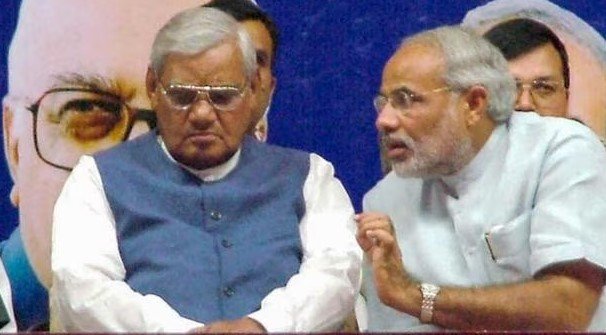Modi’s article, published in multiple newspapers on December 25, 2024, celebrates the leadership and vision of Vajpayee, whom he describes as the “architect of India’s transition into the 21st century.” According to the Prime Minister, Vajpayee played a pivotal role in setting the stage for India’s economic rise and in shaping the country’s place in the global arena.
In this deeply personal tribute, Modi recalls the numerous lessons he learned from the veteran leader, shedding light on Vajpayee’s extraordinary statesmanship and ability to inspire generations. Atal Bihari Vajpayee’s leadership qualities, his ideological convictions, and his remarkable journey continue to resonate with millions across the country.
Atal Bihari Vajpayee: The Visionary Leader Who Shaped India’s Future
Vajpayee’s tenure as India’s Prime Minister was marked by significant milestones, from the nuclear tests of 1998 to the economic reforms that positioned India as an emerging global power. Modi reflects on these moments as testament to Vajpayee’s foresight and courage in shaping India’s future. But beyond the policy decisions, it was his humility and his dedication to the nation’s progress that defined his leadership.

Modi describes Vajpayee as a leader who never clung to power, a rare trait in today’s political landscape. In an era where many politicians are fixated on retaining their positions, Vajpayee chose the path of principle over convenience. According to Modi, this steadfastness in prioritizing India’s interests above all else was one of Vajpayee’s most admirable qualities. He always sought what was best for the nation, even when it meant stepping away from power.
A Legacy Built on Ideology, Not Power
One of the central themes in Modi’s article is Vajpayee’s ability to differentiate between power and ideology. Throughout his career, Vajpayee always chose the path of ideology when faced with the tough decision of prioritizing personal ambition or the country’s future. Modi underscores this point by recounting how Vajpayee was able to offer an alternative vision to the Congress party’s traditional worldview, convincing the nation that a different direction was not only possible but necessary for India’s development.
Modi further credits Vajpayee for his role in uniting a nation that was often divided along ideological lines. He helped form a party that could be a strong alternative to the Congress, one that could bring a fresh perspective to governance and challenge the status quo. This ability to unite people under a common vision, despite political and social divisions, is one of the enduring aspects of Vajpayee’s leadership.
Key moments that defined Vajpayee’s leadership:
- Pokhran Nuclear Tests (1998): Under Vajpayee’s leadership, India conducted the Pokhran nuclear tests, asserting India’s position as a nuclear power on the global stage.
- Economic Reforms: Vajpayee’s government ushered in a new era of economic reforms, facilitating India’s economic growth and integration into the global economy.
- Political Stability: Vajpayee’s leadership provided political stability at a time when India was grappling with various challenges, both internal and external.
Lessons From Vajpayee’s Political Career
Modi’s article also delves into the personal moments he shared with Vajpayee, describing him as a mentor and guide who played a crucial role in shaping his own political career. Despite spending a significant portion of his early career in opposition, Modi recalls how Vajpayee never held any animosity or bitterness towards him or the BJP, even when political opponents labeled him a “traitor.” Instead, Vajpayee remained focused on the larger picture, prioritizing national interest over petty political disputes.
The Prime Minister stresses that Vajpayee’s ability to rise above personal attacks and maintain his dignity and composure in the face of adversity set him apart as a leader of immense character. Modi encourages the people of India to not only honor Vajpayee’s memory but also to rededicate themselves to realizing his vision for the country—one rooted in strong values, unity, and progress.
In the article, Modi also shares a selection of personal photographs with Vajpayee, offering readers a glimpse into the bond they shared. These images are a testament to the respect and admiration that Modi had for the former Prime Minister, who played an instrumental role in shaping the future of the Bharatiya Janata Party (BJP).
Reflecting on Vajpayee’s Leadership Through Personal Anecdotes
To bring home the essence of Vajpayee’s leadership, Modi recalls one of the most defining moments of Vajpayee’s career—his handling of the 1998 Pokhran nuclear tests. As Prime Minister, Vajpayee made the bold decision to go ahead with the nuclear tests despite international opposition, asserting India’s strength on the world stage. This decisive moment is emblematic of Vajpayee’s leadership style, marked by courage, conviction, and an unwavering commitment to India’s sovereignty.
The Prime Minister’s article serves as a tribute not only to Vajpayee’s legacy but also to his leadership qualities that continue to inspire future generations. The article invites readers to reflect on Vajpayee’s monumental contributions to India and encourages them to work towards fulfilling his vision of a strong, united, and progressive India.
